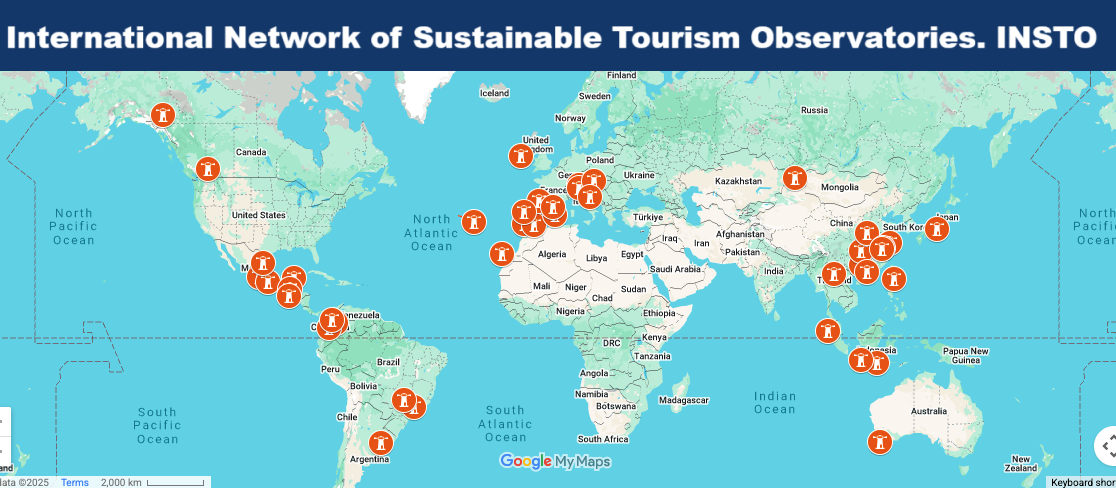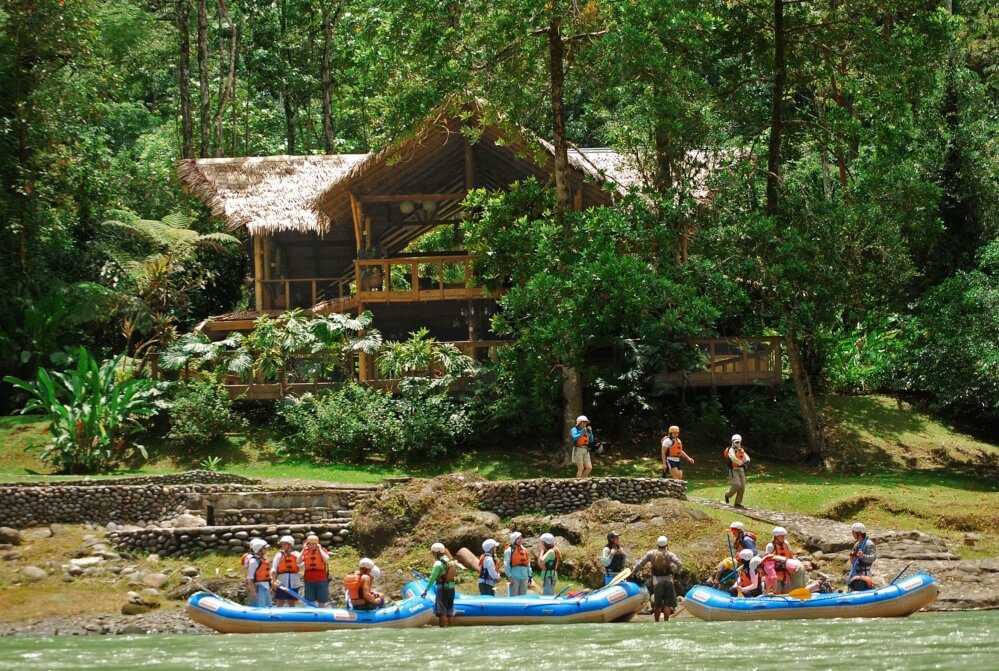Why Monitoring Sustainability in Tourism Destinations Is No Longer Optional

Professor Michail Toanoglou
Professor & Academic Director, MSc IMHI, ESSEC Business School – Expert in Sustainable Tourism

Tourism at a Crossroads
Tourism is more than an industry—it is a force that shapes environments, economies, and societies. It brings prosperity, connectivity, and cultural exchange, but it can also contribute to ecosystem degradation, overdevelopment, and community displacement if not managed responsibly. As destinations from Iceland to Indonesia grapple with the fallout of overtourism and the climate crisis, the need for a robust monitoring system has become evident.
What remains less understood is how to manage tourism in a way that balances visitor satisfaction, local community wellbeing, and environmental resilience. The answer lies in evidence: measuring what matters, and acting on what we learn. Monitoring sustainability in tourism is not merely a technical tool—it is a democratic practice that aligns destination management with the values of transparency, inclusion, and long-term thinking.
The Case for Monitoring: From SDGs to Local Realities
The global policy landscape has set clear expectations: the United Nations 2030 Agenda places tourism in a strategic position to deliver on several Sustainable Development Goals (SDGs), particularly SDG 8 (Decent Work and Economic Growth), SDG 12 (Responsible Consumption and Production), and SDG 14 (Life Below Water). However, translating these goals into local, measurable actions remains an ongoing challenge.
Joseph Stiglitz famously stated, “What we measure affects what we do.” For tourism, we’ve long measured success in terms of arrivals and revenues. But as the pandemic and planetary emergencies have shown, these indicators are insufficient. We must expand our lens to include the carrying capacity of destinations, resident satisfaction, biodiversity health, and the carbon and waste footprint of tourism systems.
INSTO: A Global Framework for Local Impact

The International Network of Sustainable Tourism Observatories (INSTO), created by UN Tourism, offers one of the most comprehensive frameworks to address these challenges. Today, more than 30 observatories across five continents monitor destination-level indicators that encompass environmental, social, and economic performance.
In Costa Rica, a pioneering observatory led by the Central Bank applied ecosystem accounting to quantify the value of nature-based tourism. Their findings showed that in 2018 alone, this segment contributed up to 1.4% of national GDP, with five key districts accounting for over 50% of this value. This data is not only impressive—it shaped national planning by identifying where ecological investments and visitor management should be prioritized.

In Indonesia, the Sustainable Tourism Observatory used environmental-economic accounts to assess the impact of marine tourism across 17 provinces. The results showed that only 3.05% of solid waste and 2.03% of wastewater from marine tourism flowed untreated into the ocean. These insights are now informing marine zoning and conservation policies under the Ocean Accounts initiative.
Such observatories offer more than statistics. They foster trust, stimulate policy dialogue, and bring transparency to tourism’s role in local ecosystems and communities.
Lessons from Europe: Tailored Frameworks and Persistent Gaps
The European Commission’s European Tourism Indicators System (ETIS) offers a tailored tool for destinations to adapt indicators to their own contexts. While ETIS provides conceptual strength and flexibility, implementation challenges remain—particularly regarding stakeholder engagement, data consistency, and capacity gaps at the destination level.
Studies from Italy, Portugal, and Serbia show that many Destination Management Organizations (DMOs) still struggle with applying indicators meaningfully, due to fragmented knowledge or institutional inertia. Despite this, ETIS has been instrumental in raising awareness and embedding sustainability discourse into local governance practices.
Complementing ETIS, the ESPON methodology further supports regional sustainability assessment across Europe, using territorial classifications, scenario building, and cross-border data harmonization. These tools reinforce that monitoring systems must evolve beyond economic data, to include cultural identity, environmental risk, and spatial dynamics—especially in tourism-intense regions like the Mediterranean, Alpine zones, or the Adriatic coast.
Beyond the Dashboard: The Role of Technology and People
Digital transformation is now reshaping the potential of sustainability monitoring. Smart destinations leverage big data, real-time analytics, and AI-powered dashboards to analyze visitor flows, emissions, and pressure points. In Austria’s Tyrol region, for instance, digital sensors track wastewater volumes and tourism traffic patterns to ensure ecosystem balance.
Yet technology is not a substitute for governance. As observed across INSTO observatories, meaningful monitoring requires strong stakeholder engagement: public-private partnerships, community participation, and academic collaboration. In Spain’s Canary Islands and Portugal’s Algarve, observatories serve as inclusive forums where local residents, policymakers, researchers, and business leaders collectively interpret data and co-design solutions.
This participatory approach is not just good practice—it is essential. Without buy-in from those most affected by tourism, sustainability policies risk becoming symbolic rather than transformative.
Barriers to Scale—and a Way Forward
Despite progress, institutional fragmentation, funding constraints, and unequal technical capacity remain key barriers to scaling observatory models globally. The 2022 UNWTO report on Measuring the Sustainability of Tourism (MST) revealed that although most pilot countries recognize the importance of monitoring, only a few have integrated it structurally into policy-making. Funding remains a top obstacle, followed by a shortage of methodological guidance and technical skills.
To address these issues, we must:
- Invest in capacity-building for DMOs and municipalities, especially in less developed destinations.
- Encourage regional cooperation to share methodologies, data platforms, and learning.
- Leverage academia and industry to build local observatories that combine research excellence with practical insight.
- Ensure long-term funding through European programs, climate resilience funds, and sustainability-linked tourism financing mechanisms.
A Strategic Imperative for the Future of Tourism
Monitoring sustainability in tourism is not an academic exercise—it is a strategic necessity. It ensures that growth aligns with long-term value creation rather than short-term profit extraction. It supports social equity, resource conservation, and policy coherence. Most importantly, it gives destinations the tools to own their future.
The post-pandemic recovery offers a once-in-a-generation opportunity to redesign tourism systems that are more adaptive, transparent, and inclusive. Monitoring is the compass that will guide us there.
As someone leading a hospitality management program at a business school, I strongly advocate embedding these practices into leadership development, digital transformation strategy, and destination governance. If we want tourism to be regenerative—not extractive—we must commit to measuring wisely, acting decisively, and involving everyone.

Professor Michail Toanoglou
Dr. Michail Toanoglou is a seasoned tourism and hospitality professional with over 30 years of industry experience, including senior roles managing 4- and 5-star hotels and consulting on destination sustainability, management, and marketing. He holds a PhD in Sustainable Hospitality and Tourism and has contributed to both public and private sector development projects across Europe and Asia.
With more than 15 years of academic experience, his teaching and research focus on sustainable tourism development, destination branding, and policy implementation. He has published on topics such as sustainability indicators and tourism carrying capacity, and regularly participates in international conferences.
From 2015 to 2023, he led international hospitality programs in South Korea at Woosong and Jeonju Universities. Since August 2023, he has served as Professor of Management Practice and Academic Director of the MSc in Hospitality Management (IMHI) at ESSEC Business School in Paris.
